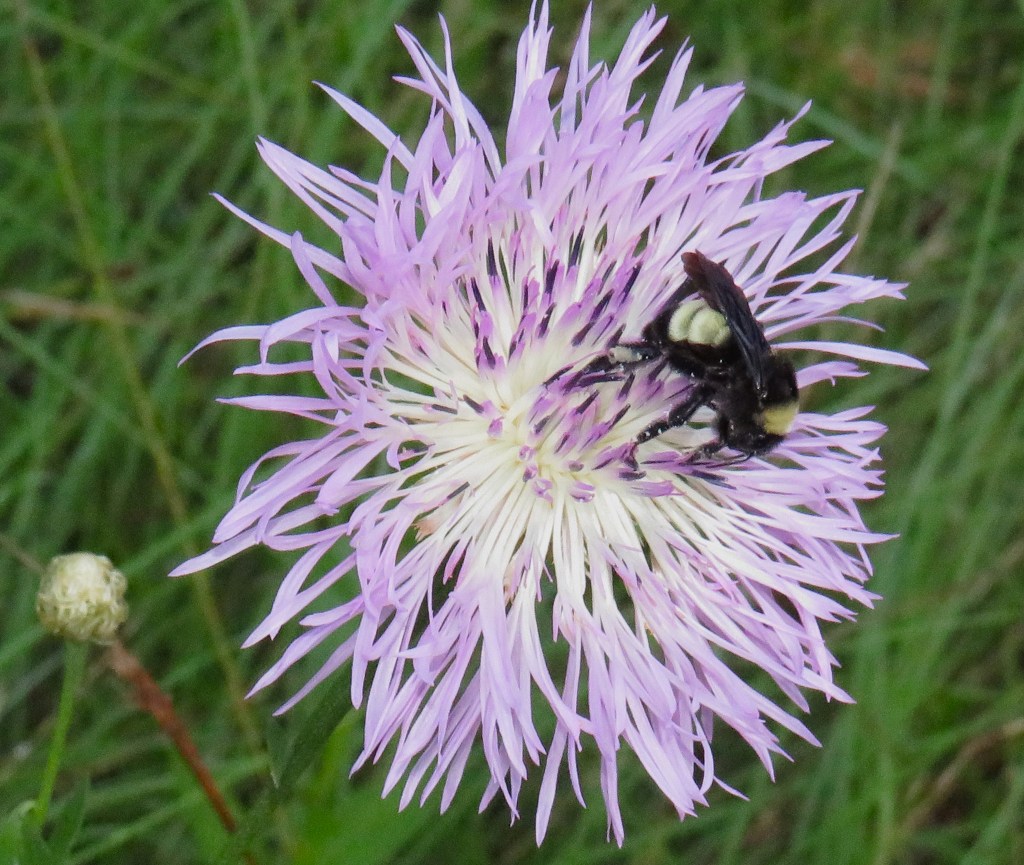Grant: Dr. Garett Slater to speak on native bees July 17
Published 5:10 am Sunday, July 13, 2025

- The American bumblebee is one of over a thousands species of native bees in Texas. (Contributed Photo)
With increasing concerns about pollinator decline every year, East Texans will have a unique opportunity to learn about our often-overlooked native bees this month. As part of the “Nature in the Garden Series,” the Smith County Master Gardeners and Texas A&M AgriLife Extension Service are sponsoring a free public program titled “Native Bees,” featuring Dr. Garett Slater, Assistant Professor and Honeybee Extension Specialist at the Texas A&M AgriLife Research and Extension Center in Overton. The event will take place Thursday, July 17, 2025, from 10:00 a.m. to 12:00 noon at the AgriLife Extension Office classroom in the historic Cotton Belt Building at 1517 W. Front Street, Suite 116, in Tyler.
Dr. Slater is known for his practical and engaging approach to pollinator education and has quickly become a sought-after speaker across the region. While most gardeners are familiar with European honeybees, fewer are aware that hundreds of native bee species live and work right here in East Texas. These include bumblebees, leafcutter bees, sweat bees, carpenter bees, and many more, each playing a vital role in pollinating a diverse range of trees, shrubs, vines, wildflowers, vegetables, and fruits.
In his presentation, Dr. Slater will introduce participants to the diversity of native bees, their life cycles, nesting habits, and the specific plants they rely on. He will share actionable strategies for making home landscapes more attractive and supportive of native pollinators. Topics will include flower selection, bloom timing, nest site preservation, and eliminating pesticide exposure. He’ll also explain how native bees differ from honeybees in their biology, foraging behavior, and pollination efficiency.
Trending
Native bees are essential for a functioning ecosystem and for food production, yet they often go unnoticed and unappreciated. Many species are solitary, ground-nesting, or active for only a few weeks each year. Their survival depends heavily on appropriate habitat and minimal disturbance. Dr. Slater’s talk will show that creating a welcoming space for native bees can be as simple as choosing the right flowering plants, reducing pesticides, leaving patches of bare ground, or preserving dead wood in out-of-the-way corners of the garden.
This free program is open to the public, but space is limited, and advanced registration is encouraged. Attendees can sign up online at https://smith.agrilife.org/ngs/ or by calling the Smith County AgriLife Extension Office at (903) 590-2980. A QR code for registration is also available on the event flyer, which has been posted on the Smith County Master Gardener Facebook page.
With native bee populations facing threats from habitat loss, climate change, and pesticides, this timely event offers gardeners and nature lovers a chance to become part of the solution. Whether you manage a suburban lot or rural acreage, you’ll come away with a deeper appreciation of native bees and specific steps you can take to support them.
— Greg Grant, Ph.D., is the Smith County horticulturist and Master Gardener coordinator for the Texas A&M AgriLife Extension Service. He is the author of Texas Fruit and Vegetable Gardening, Texas Home Landscaping, Heirloom Gardening in the South, and The Rose Rustlers. You can read his “Greg’s Ramblings” blog at arborgate.com, read his “In Greg’s Garden” in each issue of Texas Gardener magazine (texasgardener.com), or follow him on Facebook at “Greg Grant Gardens” or “Rebel Eloy Emanis Wildlife Sanctuary.” More science-based lawn and gardening information from the Texas A&M AgriLife Extension Service can be found at aggieturf.tamu.edu and aggie-horticulture.tamu.edu.






